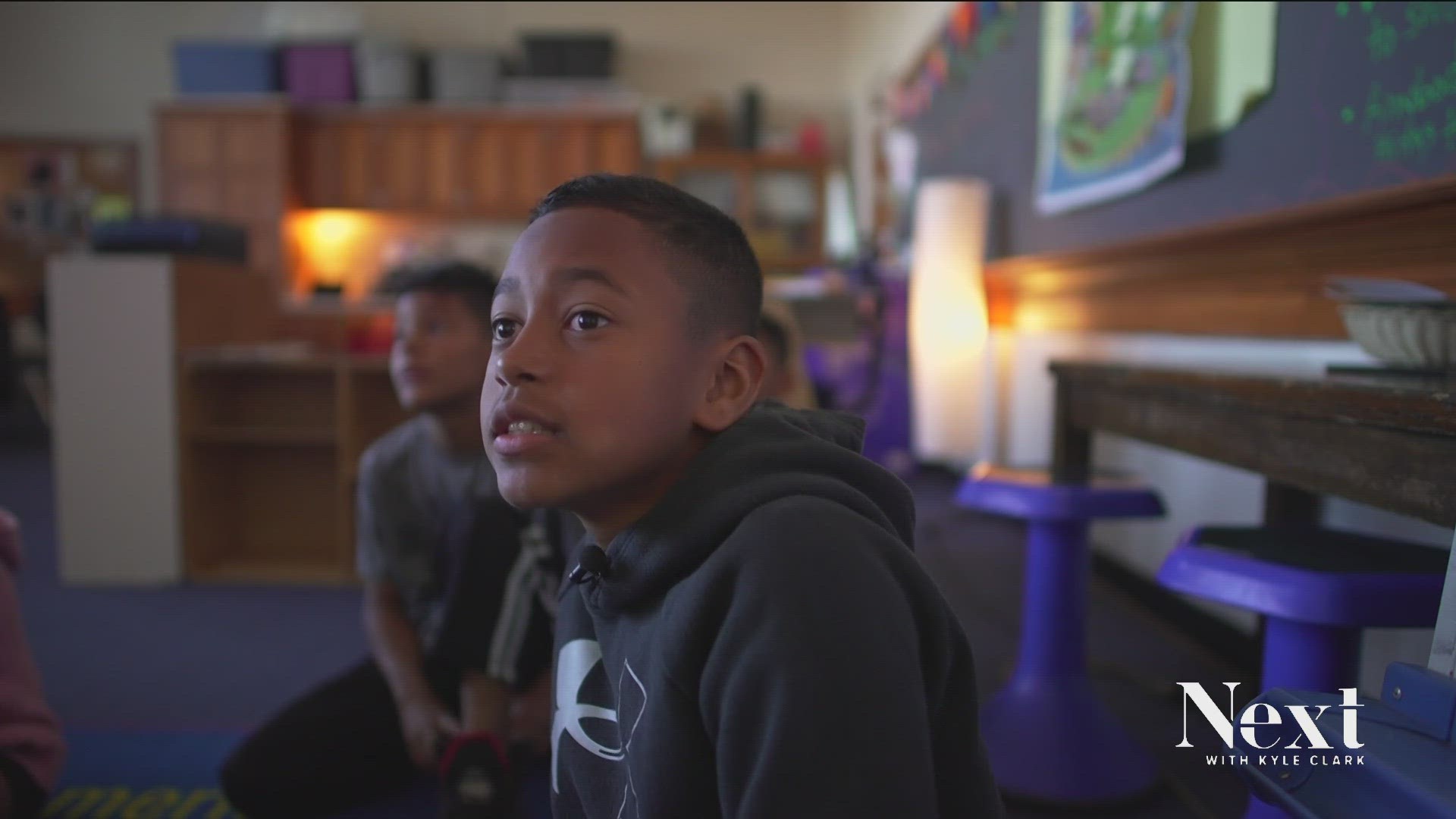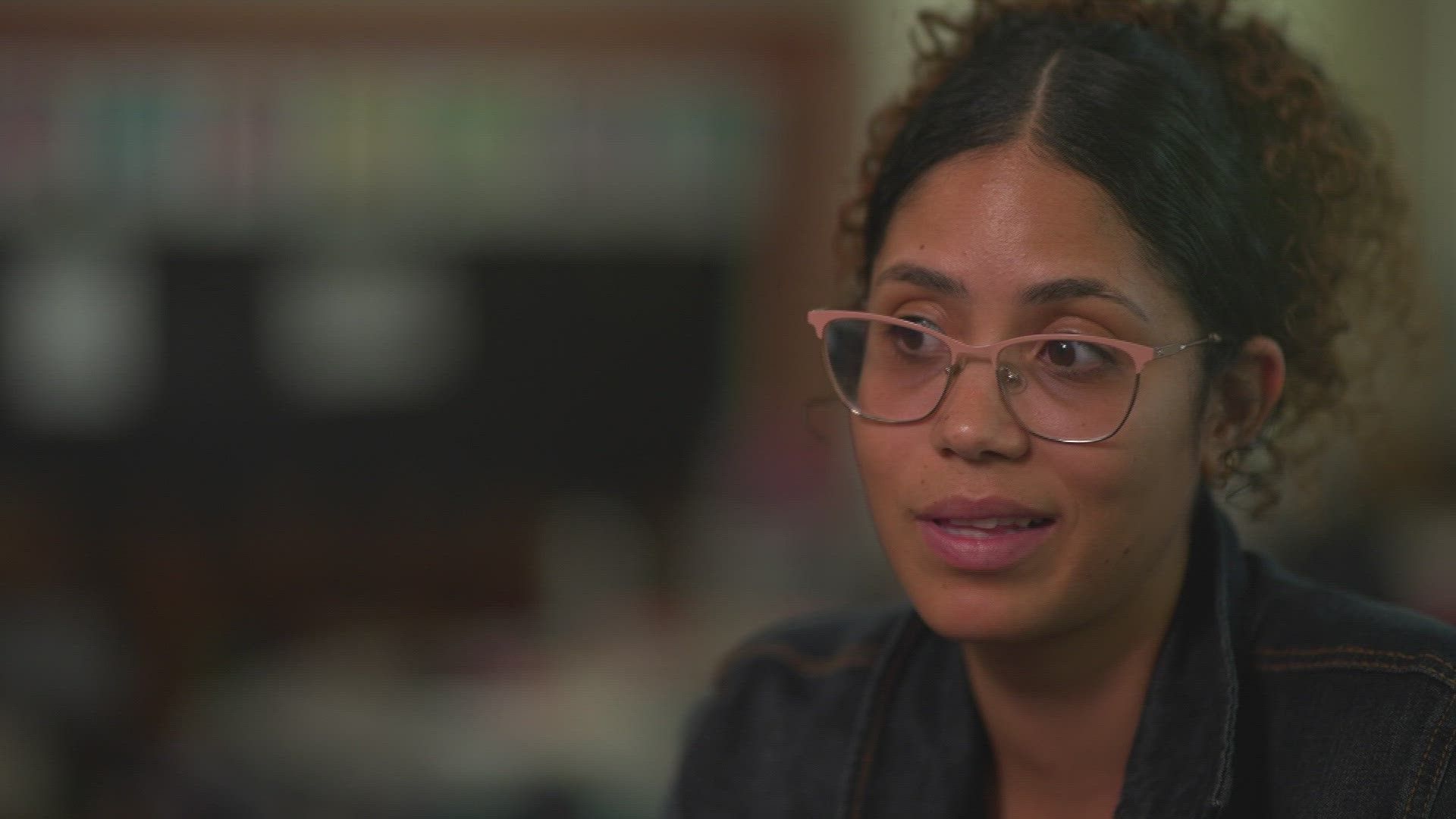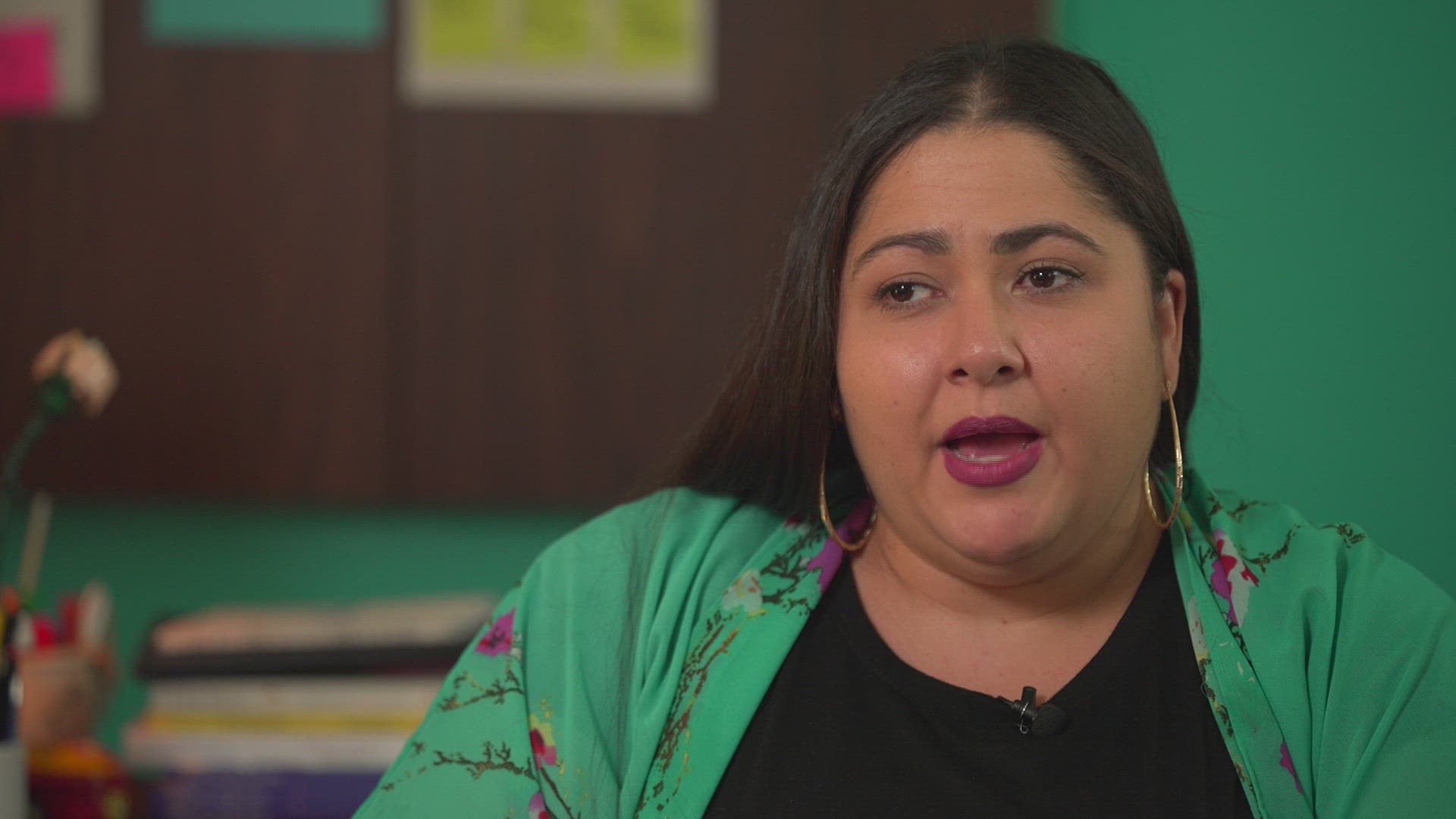DENVER, Colorado — Maria made the decision to bring her two kids Jose Ángel and Maríangel to the United States because she wanted them to have an opportunity to study.
School system differences
In Venezuela, the school system is so different that in the end, they felt like they weren't learning anything in the classroom.
"In Venezuela, we never learned anything. We went to school, but they didn't teach us anything well," said Maríangel, who said classes made up of different grade levels and ages would all learn in one room.
Their family moved to Columbia for two years, but much of the same was repeated. For almost two years, the kids didn't go to school because of the pandemic.
Maríangel also was a victim of bullying while in Columbia. A group of students attacked her, and she required stitches and surgery.
"Yes, everyday I'm worried," said Maria. "I also feel a sense of concern because there was a time that she was a victim of a bully."
At West Middle School, it took Maríangel a couple of months to become comfortable enough to make friends.

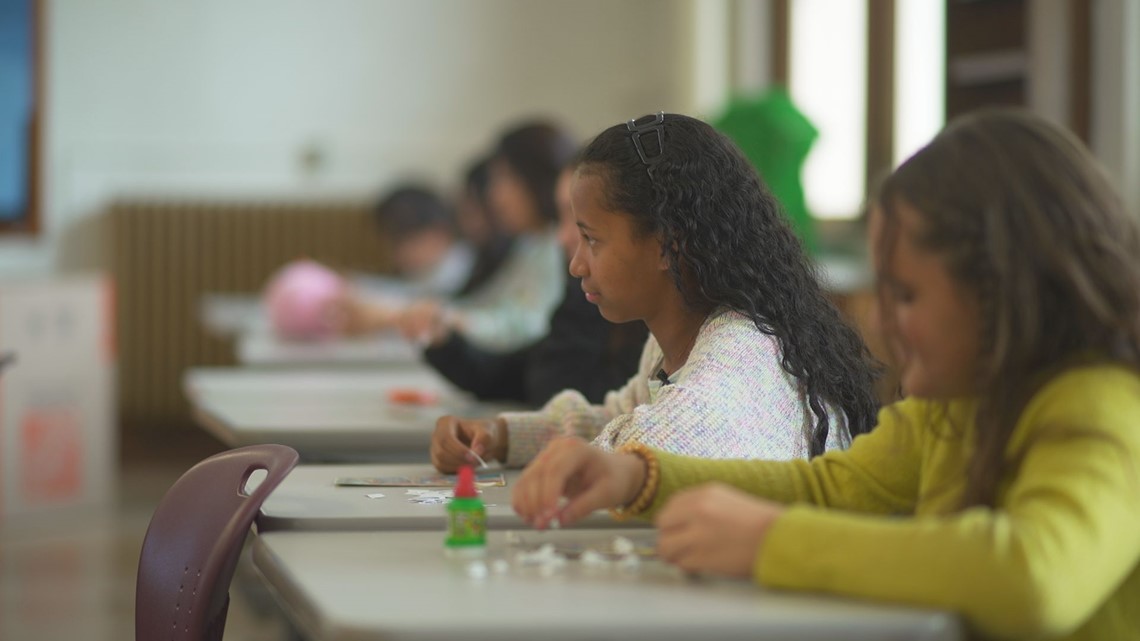
"There were times when there were assignments that were really difficult and in English. The girls would say, ‘I could help you.' Nope," Maríangel said. "Because it made me feel embarrassed and nervous."
By the end of the school year, her shyness went away.
"[I'm] happy because in Columbia, I didn’t have any friends because they were mean. When I came here, there were some Mexicans, and they were able to understand me and speak English. So they were able to teach me a little more," Maríangel said.
Transportation difficulties
Denver Public Schools made the enrollment process simple for most migrant families arriving in the middle of the year. For Maria, it was a relief to finally enroll her kids in school. She thought it would be the hardest part, but it wasn't.
She struggled once she moved out the shelter to actually get her kids to school. When they moved out of the shelter system into more stable housing, she found herself further away from Garden Place Academy, her son's school, and West Middle School, her daughter's school. Both are also in different directions.
"I’m always looking for a way. How do I do it? How can they arrive? Who can take them? I’m always trying to ask for a favor, a favor," Maria said.
She would ask for favors from anyone who would be able to take even one of her kids. She would often take RTD with the other to get them to school. It became easy when her husband's friend loaned him a car.
"In the mornings, it's crazy. It gives me a headache," Maria said.
With her husband driving when he can, he will often end up late to his job, the main source of their family's income.
During the weeks when it was hardest for Maria to get both kids to school, Jose Ángel would sometimes go every other day. His teacher noticed.

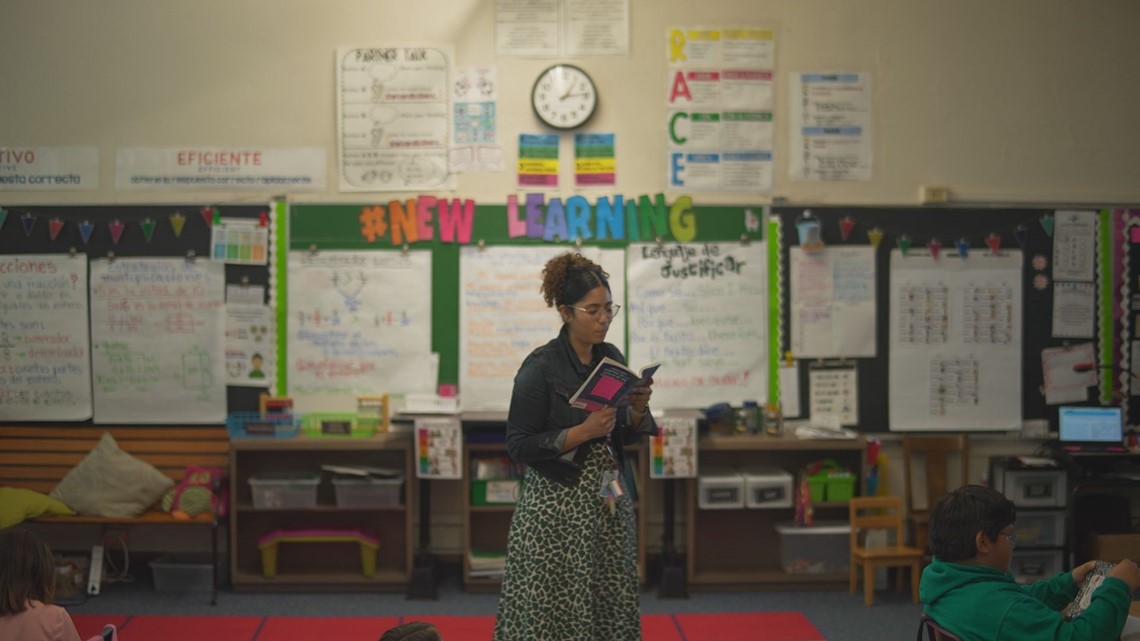
"I was thinking that he was sick at first, but then he was well when he was here. I had remembered she had said that she has to take her other daughter. So, I said, 'It’s okay if he is late.'" Jose Ángel's teacher Fernanda Mansfield said.
Native Spanish instruction
Mansfield started teaching Jose Ángel around February.
At Garden Place, the school emphasizes native language instruction, meaning that students are taught in their native language to build a foundation. They are then taught English as they continue their studies.
For instance, in kindergarten, it's almost 100% native language spoken in the classroom. By 5th grade, it becomes about 50%.
For Jose Ángel, he learns in a primarily Spanish-speaking classroom. He would take 45 minutes each morning in his English Language Development (ELD) class where he and other students would learn English.
"He’s very reserved and very mature. That’s how I would describe him," Mansfield said.

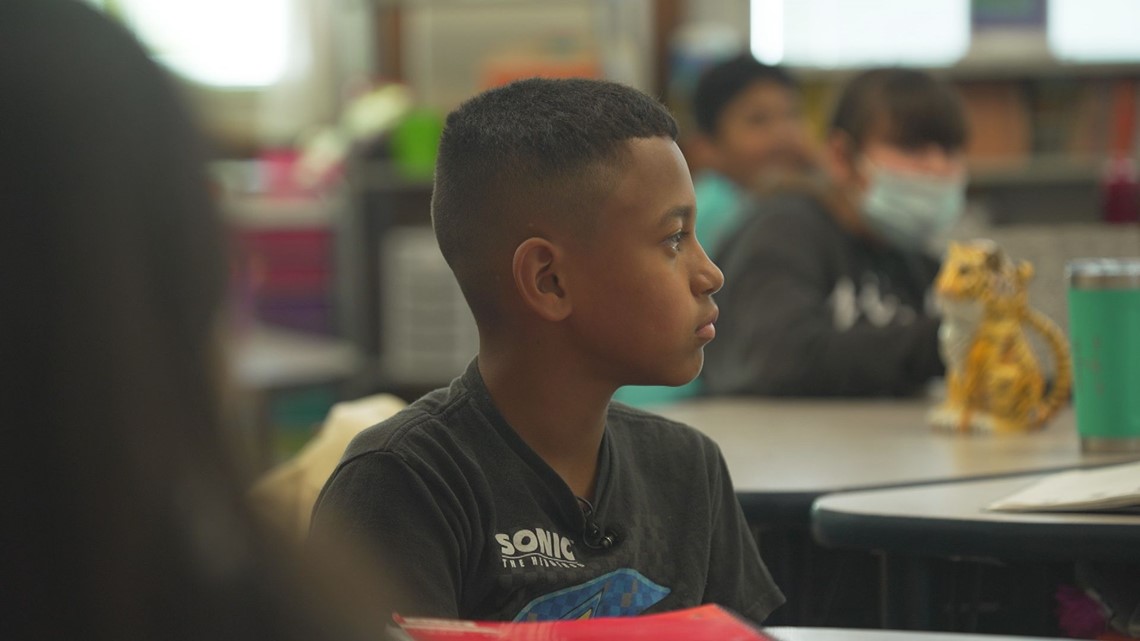
She herself is an immigrant and knows some of the struggles her newcomer students have faced.
"I’ve had to translate to my mom because she didn’t speak the language," Mansfield said. "I never want them to feel like because they don’t know English yet, they feel any less than anybody that does speak the language."
Even though he'll be moving on with a different teacher next year, she hopes Jose Ángel can still rely on his first teacher.
"Brightness," Mansfield said when asked what she wants for Jose Ángel and her other students. "Many, many doors because the experience, because their maturity, because of what they have gone through...just reaching for the skies and doing whatever it is that they want to do and who they want to become. And also, for them to become voices for the families and the kids who they cross that should take their place in this country."
Garden Place accepted 25 students in total from South American, mainly from Venezuela and Columbia.
"We have a few newcomers every year, but this is definitely the most newcomers that we have had," Principal Andrea Rentería said. She said her school was positioned to help within the district. "When DPS gave us a call at the beginning of this last trimester to ask if we would be willing to take on these students, I was like, 'Yes, why didn’t you call us earlier?'"
The incoming students have also been able to share their own language and culture with students from different backgrounds. They are being exposed to different dialects they may not have heard before.
"That’s the most important thing, and that’s opening people’s eyes to the different struggles and different adventures and different backgrounds. That even though we are the same, we are different. And that different is beautiful," Rentería said.
Progress through the end of the year
Jose Ángel and Maríangel both feel like they've made immense progress. One day, Jose Ángel hopes to be a pilot and his sister hopes to become a doctor.
"[I'm] happy because I feel like I’m going to learn a little more. I already feel like I can understand a little more English," Jose Ángel said.
When he first started classes, he felt out of place. He would see other kids raising their hands to answer questions, but he was hesitant.
"I feel different because everyone speaks English. In reality, when they would talk, they would raise their hands and answer some questions. I didn’t understand anything," Jose Ángel said.
By the end of the year, he started gaining confidence that he hopes to carry into next year.
SUGGESTED VIDEOS: 9NEWS Originals

